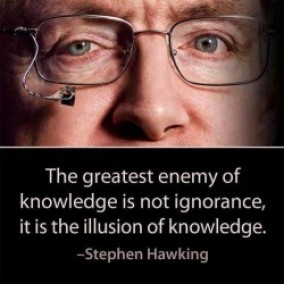We have to wake up: factory farms are breeding grounds for pandemics: Covid-19’s history is not yet fully known, but the links between animal and human health could not be clearer Guardian
NOTE: During this pandemic, and always, immediate safety, health and other concerns come before discussion on other related issues. Discussion on policies during the pandemic, their implications and choices we make collectively for the future do not, in any way, minimize the impacts of the present crisis.
While this pandemic continues, and most of the world remains locked down, it feels imperative to me to try to look at root causes, as a way to reduce the chances that this happens again. This does not minimize the work that countless people are doing to find a treatment etc. However, I think we can all agree that working to prevent the next pandemic is at least as important as addressing the current crisis. To be clear, information on this current pandemic is rapidly changing. I am focusing on a combination of what we know about this pandemic in the present, as well as what seems to be clear about trends, related to animals, food systems and climate change, in broader terms.
……..
Following up from a few days ago, there is more evidence that factory farming – and the general systems through which most of the world gets animal products (including meat, dairy and eggs) is an overwhelming contributor to the disease spread which leads to pandemics and the type of crisis that we are in right now.
Pathogens do not respect species boundaries, either. Influenza and coronaviruses move fluidly between human and animal populations, just as they move fluidly between nations. When it comes to pandemics, there is not animal health and human health – not any more than there is Korean health and French health. Social distancing works only when everyone practises it, and “everyone” includes animals. (Bold mine)
Guardian
So, the evidence is clear, The question is only related to how we respond to the clear risk to our own health (personally, communally and for the climate), that this evidence presents to us.
To reduce risk of pandemics for ourselves, our gaze needs to turn to the health of animals. In the case of wild animal populations, such as the bats that scientists have theorised as a probable origination point for Covid-19, the best solution seems to be to limit and regulate human interaction.
In the case of farmed animals, though, the lack of public understanding has allowed unscrupulous corporations to move policy in exactly the wrong direction. Across the globe, corporations have succeeded in creating policies that use public resources to promote industrial farming. One study suggests that the public is providing $1m per minute in global farm subsidies, overwhelmingly used to prop up and expand the current broken model. The same $1m a minute that promotes factory farming also increases pandemic risk. (Bold mine).
Guardian
What other systems are allowed to remain so pervasive in every day life, with consequences that are so profound, yet so unspoken? So, here’s today’s challenge. Let’s come out of this pandemic with at least one silver lining. Let’s make sure that we change our systems so that we have reduced our risk for the future. What does that look like practically?
Here are some next steps to consider. Pick, choose, adjust for your individual circumstances. 🙂
1) Stop eating animal products. Use up what you currently have in your fridge/freezer, and commit to not buying more after that.
2) Commit to only eating animal products from very small farms (eg a few backyard chickens etc), where the disease risks can (presumably) be managed, and we are not interfering with nature/wildlife (eg hunting etc). For overall climate emissions, a total consumption reduction is in order (especially for meat), but this is one way to still use eggs, for example, without the disease risks that come from larger operations.
These two are the fastest pathways to change, and are best for both disease prevention and climate health. Systems change, from a policy perspective, is very difficult, especially when large players are making money on the status quo.
Especially during this shutdown, stocking up on dried legumes and rice etc is not only easier and more sustainable, it’s also more cost effective. A large bag of brown rice and a few bags of dried lentils and chickpeas goes a long ways. 🙂
3) In addition to the above, a secondary level of change work is related to advocacy and policy change. After significantly reducing/eliminating the market for animal products from factory farms etc, creating strong policies to ensure better practices for the future is much easier, although it still often takes a long time.
Let me know what changes you are making in response to this challenge. I’d love to hear from you. 🙂
Hope everyone is staying safe!
…….
Donations, whether large or small, are gratefully received to help maintain this website. PayPal details are available on the website. Thank you!
Like this:
Like Loading...



